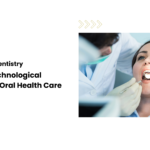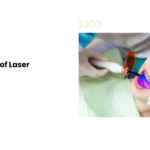How to Care for Your Teeth After Dental Procedures
Undergoing a dental procedure is a significant step towards maintaining and improving your oral health. Whether it’s a routine filling, a root canal, or a more complex surgery like dental implants, proper post-procedure care is essential for ensuring a smooth recovery and long-term success. In this blog, we will explore detailed guidelines and tips for caring for your teeth after various dental procedures.
General Post-Procedure Care Tips
Regardless of the specific procedure, there are some general post-procedure care tips that can help ensure a smooth recovery:
- Follow Your Dentist’s Instructions: Always adhere to the care instructions provided by your dentist. They are tailored to your specific procedure and individual needs.
- Pain Management: It’s normal to experience some discomfort after a dental procedure. Over-the-counter pain relievers like ibuprofen or acetaminophen can help manage pain. Your dentist might also prescribe stronger pain medication if needed.
- Oral Hygiene: Maintain good oral hygiene by brushing and flossing gently. Avoid the surgical or treated area initially if advised by your dentist.
- Diet: For a few days, follow a soft diet to avoid putting pressure on the treated area. Avoid hot, cold, or spicy foods that might cause irritation.
- Hydration: Drink plenty of water to stay hydrated and help flush out your system.
- Avoid Tobacco and Alcohol: These can delay the healing process and increase the risk of infection.
Care After Fillings
Fillings are a common dental procedure used to treat cavities. Here’s how to care for your teeth after getting fillings:
- Avoid Chewing on the Treated Side: Especially while the numbing agent is still effective, avoid chewing to prevent biting your cheek or tongue.
- Sensitivity: You might experience sensitivity to hot, cold, or sweet foods. This is normal and should subside within a few days.
- Gentle Brushing and Flossing: Continue your regular oral hygiene routine, but be gentle around the treated area.
Care After Root Canals
Root canals are performed to save a tooth that is badly decayed or infected. Post-care involves:
- Pain Management: Some discomfort is normal. Use prescribed painkillers and avoid chewing on the treated tooth until the permanent filling or crown is placed.
- Temporary Filling Care: If a temporary filling is placed, avoid hard or sticky foods that might dislodge it.
- Oral Hygiene: Maintain good oral hygiene, but be gentle around the treated area to avoid irritation.
Care After Extractions
Tooth extractions require careful post-operative care to ensure proper healing:
- Control Bleeding: To help stop bleeding, bite on a gauze pad for 30-45 minutes immediately after the procedure. If bleeding persists, replace the gauze and bite firmly again.
- Avoid Rinsing and Spitting: Do not rinse your mouth vigorously or spit for the first 24 hours to avoid dislodging the blood clot.
- Cold Compresses: Apply a cold compress to your cheek for the first 24 hours to reduce swelling.
- Soft Diet: Stick to a soft diet and avoid hot foods and beverages for the first few days.
- No Smoking or Drinking through a Straw: These actions can dislodge the blood clot and delay healing (known as dry socket).
Care After Dental Implants
Dental implants require meticulous care to ensure successful integration and healing:
- Oral Hygiene: Keep your mouth clean by rinsing with a prescribed antibacterial mouthwash. Brush your teeth gently, avoiding the implant site initially.
- Soft Diet: Follow a soft diet for a week or as advised by your dentist.
- Avoid Pressure on the Implant Site: Do not chew on the side where the implant is placed until it has fully healed.
- Regular Check-ups: Attend all follow-up appointments to monitor the healing process and implant integration.
Care After Periodontal Surgery
Periodontal surgery treats gum disease and requires specific post-care:
- Gentle Oral Hygiene: Use a soft-bristled toothbrush and follow your dentist’s instructions on how to clean your mouth without disturbing the surgical site.
- Avoid Physical Activity: Refrain from strenuous activities for a few days to prevent bleeding and swelling.
- Use Prescribed Mouthwash: This can help control infection and promote healing.
Conclusion
Proper post-procedure care is crucial for a quick recovery and the long-term success of dental treatments. By following your dentist’s instructions, maintaining good oral hygiene, managing pain, and taking appropriate dietary precautions, you can ensure that your dental procedure yields the best possible results. Always reach out to your dentist if you experience severe pain, prolonged bleeding, or any other concerns during your recovery process. Taking these steps will help you maintain a healthy, beautiful smile for years to come.



